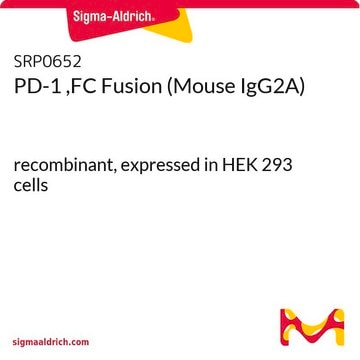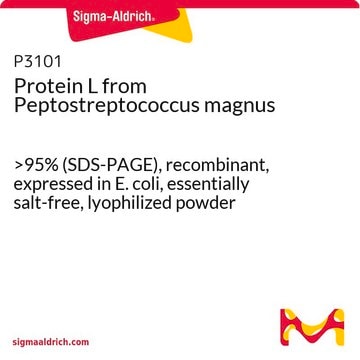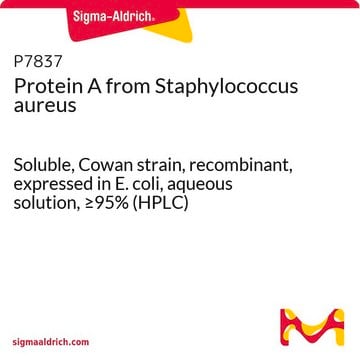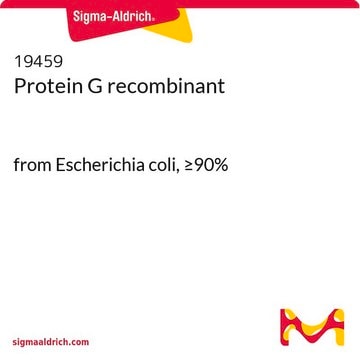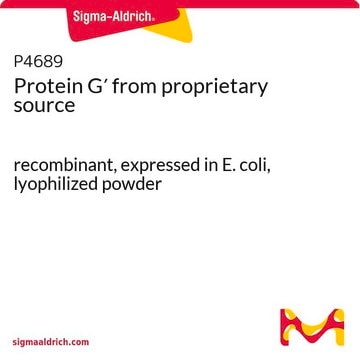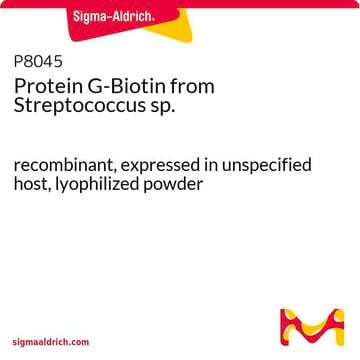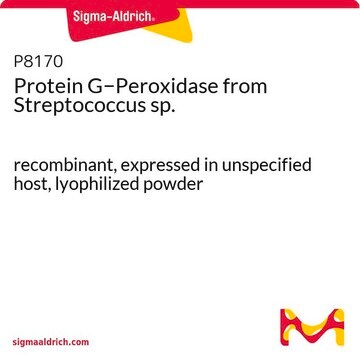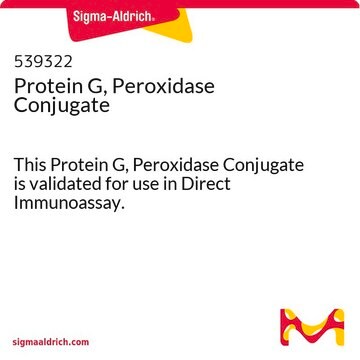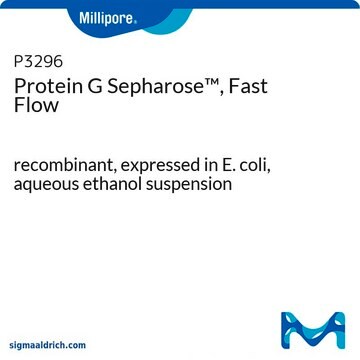08062
Protein G′ from Streptococcus sp.
recombinant, expressed in E. coli
Synonyme(s) :
IgG F(c)-Receptor
Se connecterpour consulter vos tarifs contractuels et ceux de votre entreprise/organisme
About This Item
Produits recommandés
Source biologique
bacterial (Streptococcus sp.)
Niveau de qualité
Produit recombinant
expressed in E. coli
Forme
lyophilized solid
Poids mol.
~30 kDa
Capacité
~5 mg/mg, solid binding capacity (IgG)
Température de stockage
−20°C
Description générale
Protein G, a cell wall protein, is obtained from group G streptococci. The extracellular part of this protein is made of two/three small domains or serum albumin binding (GA domains) and two/three immunoglobulin (IgG) binding domains (B domains).
Genetically engineered truncated protein G; retains affinity for IgG, but lacks albumin and Fab binding sites and membrane-binding regions.
Application
Protein G′ from Streptococcus sp. has been used in in vitro actin labeling assay.
Actions biochimiques/physiologiques
Protein G can bind all the human and mouse IgG subclasses. It can bind to both the fragment crystallizable (Fc) and antigen-binding fragment (Fab) components of the antibody.
Forme physique
lyophilized powder in a Tris-HCl buffer, pH 7.5
Code de la classe de stockage
11 - Combustible Solids
Classe de danger pour l'eau (WGK)
WGK 3
Point d'éclair (°F)
Not applicable
Point d'éclair (°C)
Not applicable
Équipement de protection individuelle
Eyeshields, Gloves, type N95 (US)
Faites votre choix parmi les versions les plus récentes :
Déjà en possession de ce produit ?
Retrouvez la documentation relative aux produits que vous avez récemment achetés dans la Bibliothèque de documents.
Les clients ont également consulté
1405830
Nezlin R
The Immunoglobulins: Structure and Function null
Essential Guides for Isolation/Purification of Immunoglobulins
Layer A, et al.
Encyclopedia of Separation Science, 4553-4559 (2000)
Archana Kumari et al.
The EMBO journal, 39(14), e104006-e104006 (2020-06-23)
Cellular studies of filamentous actin (F-actin) processes commonly utilize fluorescent versions of toxins, peptides, and proteins that bind actin. While the choice of these markers has been largely based on availability and ease, there is a severe dearth of structural
Notre équipe de scientifiques dispose d'une expérience dans tous les secteurs de la recherche, notamment en sciences de la vie, science des matériaux, synthèse chimique, chromatographie, analyse et dans de nombreux autres domaines..
Contacter notre Service technique
